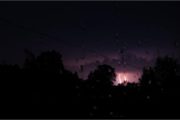There remained but one final task. Mr. Steg had entrusted his keys to my sister, and one of these, to judge from its shape, was for a safety deposit box, presumably at his neighbourhood bank. Into his account we intended to deposit some $8,000.00 we had found among his papers and classical CDs in shoe boxes, to be held there until it could be claimed by some as yet unknown beneficiary. The money did not belong to us, after all. There was also the faint chance that his missing will might be found in the box. Armed with his death certificate, Eileen and I presented ourselves to the bank manager, identified ourselves as de facto executors to his satisfaction, and accompanied him and another employee to the vault, where we discovered that the key did in fact fit a safety deposit locker in the name of Mr. Steg. The employee extracted the box and accompanied us to the manager’s office, where it was opened. Its contents were a revelation.
In it there was no will. There were, however, a number of South African krugerrands, at one time believed to be a safe hedge against inflation, Mr. Steg’s long-expired German passport and a Canadian certificate of his status as a Permanent Resident, many faded photographs of him in his childhood and early youth, letters of reference from employers attesting to exemplary work he had performed for them over the years, and under these, carefully wrapped in layers of tissue paper, were some more recent colour photographs of graves of Americans, to judge from the flags flying beside a number of the tombstones. On several of these, a Star of David was clearly visible, and small stones were piled on one or two of them as is the Jewish custom. Was this a Holocaust cemetery? The names were clearly Jewish: Hartman, Siegel, Kagan. In a flash of intuition, I knew why I had never known Mr. Steg’s Christian name. It was because he did not have one. There, on one of the letters of attestation, was the evidence of his first name: Abraham. He was Jewish! At the bottom of the shallow box I found an envelope enclosing confirmation of this. It was a New Year’s card sent to “Dear Bram” in 1987 from the New York address of his Uncle Julius. It was embossed with a golden Star of David, and spoke of family members that Eileen, who had known Mr. Steg from childhood, had never heard of: two cousins in Barcelona, a brother, Max, who “leads a Bohemian life,” Sara’s son David and his wife “from Israel” and even the author’s daughter Leah, married to a rabbi, and then living in Montreal! There was, of course, no doubt by now, but there was more. We could not read a folded document, worn with much handling, because it was in German, but it ominously bore a swastika. Underneath it lay another worn document in three languages, English, Russian, and French. It attested to Mr. Abraham Steg’s period of “forced labour” as a “navvy” in the Dora slave labour camp near the town of Nordhausen in the Harz Mountains. This camp, populated mostly by Poles and other Slavic “subhumans,” was itself a subdivision of Buchenwald, the Nazi extermination camp for people of the Jewish faith. This second document, issued by a British army official, acknowledged Mr. Steg’s “inhuman treatment” at the hands of the Nazis “due to your Jewish descent.” More than 20,000 of the inmates of Dora were worked to death, starved, or executed there by the SS. Dora’s slaves made V-2 rockets to be fired across the Channel at British cities after the Royal Air Force’s Bomber Command had destroyed the Nazi rocket base at Peenemunde in 1943, necessitating the transfer of its deadly work to the underground facility at Dora, which continued even after the Allies had conclusively defeated the Luftwaffe in aerial combat. Many of those responsible for the inhuman brutality Nazi Germany was notorious for at Dora and elsewhere were never punished. This brutality was Dora’s horrific legacy to history: it was a monument to murder, a killing machine with its unmarked mass graves of victims of genocidal madness, and its sorrowing survivors, their families and descendants.




